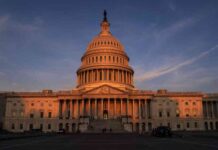Former President Donald Trump’s lack of a comprehensive plan to replace the Affordable Care Act, commonly known as Obamacare, continues to raise concerns among experts and voters alike. Despite eight years of promising to repeal and replace the healthcare law, Trump has yet to provide a detailed alternative, leaving many to question his ability to deliver on this campaign promise.
Trump’s Vague Promises
During a recent debate with Vice President Kamala Harris, Trump claimed to have “concepts of a plan” to replace Obamacare, emphasizing the need for a more affordable healthcare system. However, critics argue that his lack of a specific proposal raises doubts about the feasibility of his promises. John A. Graves, a professor of health policy and medicine at Vanderbilt University School of Medicine, expressed skepticism, stating, “It’s kind of hard to find any meat on the bones. It’s just kind of bluster and can kicking.”
Trump’s pitch for a more affordable health law comes at a time when healthcare spending in the United States is soaring, with Americans paying significantly more for healthcare than any other nation. While the idea of reducing costs may seem appealing, the challenge lies in creating a replacement plan that addresses the escalating expenses without compromising coverage or quality of care. Larry Levitt, executive vice president of health policy at KFF, highlighted the complexity of the issue, stating, “Any ACA replacement plan would involve trade-offs and winners and losers, and you can bet that the losers would scream loudly.”
Impact of the Affordable Care Act
The Affordable Care Act has provided health insurance coverage to approximately 50 million Americans over the past decade, making it a critical lifeline for many individuals and families. With a record 21 million people enrolling in ACA coverage in 2024, the law has garnered broad support for its provisions, including expanded Medicaid coverage and premium subsidies that make healthcare more accessible and affordable for millions of Americans.
However, these benefits come at a cost to the government, with the Affordable Care Act expected to incur significant expenses in the coming years. Levitt noted that the federal government is projected to spend around $631 billion on the healthcare law over the next five years, underscoring the financial implications of any proposed changes or replacements.
Republican Alternatives
While Trump has yet to unveil a concrete replacement plan for Obamacare, there are competing proposals from Republicans in Congress that offer alternative approaches to healthcare reform. The Republican Study Committee, a caucus of conservative House Republicans, published a plan in March that seeks to roll back ACA subsidies and regulations while transitioning Medicaid to a block grant system.
The proposed plan aims to save the federal government over $4.5 trillion over the next decade, but critics warn that such drastic changes could have far-reaching consequences. Gerard Anderson, a professor of health policy and management at Johns Hopkins University, cautioned that implementing a block grant system could result in states receiving less funding for healthcare, ultimately leading to coverage losses for millions of Americans.
As policymakers debate the future of healthcare in the United States, the potential impact of these proposed changes on patients and the overall healthcare system remains a point of contention. The Center on Budget and Policy Priorities estimates that millions of Medicaid recipients could lose coverage under the Republican plan, along with 4 million individuals covered under the Affordable Care Act.
Challenges Ahead
The upcoming election will play a crucial role in determining the future of healthcare in America, as both candidates offer divergent visions for addressing the shortcomings of the current system. Jill Horwitz, a professor of law and medicine at UCLA School of Law, urged voters to consider the implications of Trump’s past actions on healthcare, noting that his administration’s policies resulted in increased uninsured rates and reduced access to care for vulnerable populations.
Moving forward, experts emphasize the importance of extending enhanced subsidies under the Affordable Care Act to ensure continued coverage for millions of Americans. While Vice President Harris has pledged to extend these subsidies, Trump’s stance on the issue remains unclear, raising concerns about the potential impact on healthcare affordability and access in the years to come.
In conclusion, the debate over the future of healthcare in America underscores the need for comprehensive and sustainable solutions that prioritize affordability, coverage, and quality of care for all Americans. As voters weigh their options in the upcoming election, the stakes are high, with the outcome likely to shape the trajectory of healthcare policy for years to come.

















